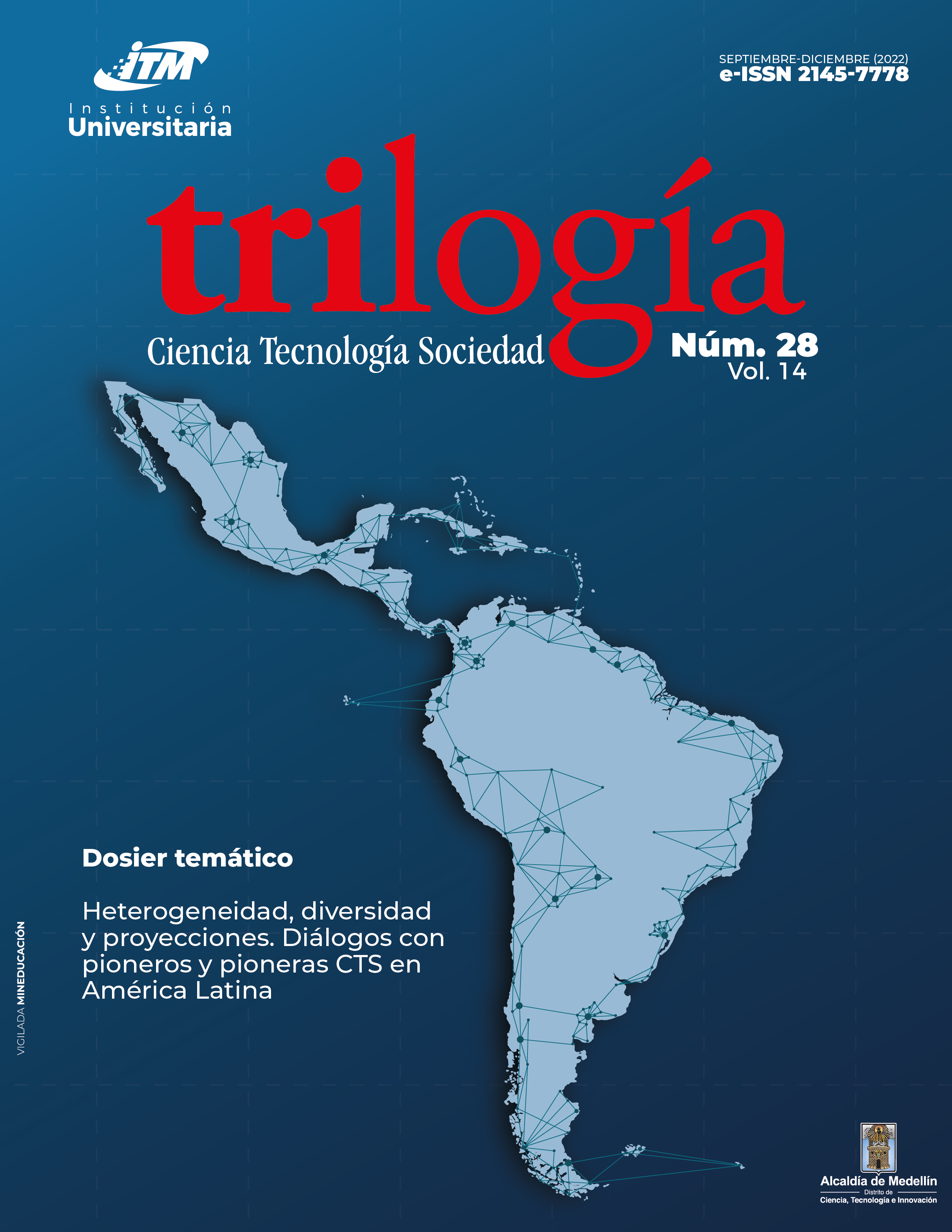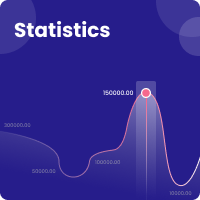Precision Agriculture and its Capitalist Character: The Non-Neutrality of Technology
Abstract
One of the most important aspects of today’s capitalism is technology and its rapid development. Technology is the pillar of innovation studies, and it is debated whether developing countries can make qualitative leaps if they manage to embark on the new technologies that emerge as years pass (e.g., biotechnology, nanotechnology, the Internet of Things, big data, etc.). Industry 4.0 is referred to as a new technological revolution, although it encompasses a variety of technologies. In this article, we analyze the widely discussed topic of technological neutrality, but we do so in relation to one of the leading technologies in the Industry 4.0 movement: precision agriculture. Based on a review of the scientific literature on precision agriculture and using the method of analysis of critical political economy, we draw theoretical-methodological conclusions that are not always acknowledged in the controversy surrounding the neutrality of technology. This article identifies objective trends in the field of precision agriculture, and not only circumstantial causes of political-subjective origin, which are common in the literature of Science, Technology and Society Studies.
References
Alcalá, P. (2020, 27 de noviembre). Mexico To Build Precision Agriculture Infrastructure. Mexico Business News. https://mexicobusiness.news/infrastructure/news/mexico-build-precision-agriculture-infrastructure
Ali, R. (2009). Technological Neutrality. Lex Electronica, v. 14, n. 2. https://www.lex-electronica.org/files/sites/103/14-2_ali.pdf
Bellon Maurel, V., Huyghe, C. (2017). Putting agricultural equipment and digital technologies at the cutting edge of agroecology. OCL, v. 24, n. 3, D307. https://doi.org/10.1051/ocl/2017028
Bernardi, A. C. C., Bettiol, G. M., Grego, C. R., Andrade, R. G., Rabello, L. M., Inamasu, R. Y. (2015). Ferramentas de agricultura de precisão como auxílio ao manejo da fertilidade do solo. Cadernos de Ciência & Tecnologia, v. 32, n. 1/2, 205-221. https://seer.sct.embrapa.br/index.php/cct/article/view/23314/13165
Bijker, W. E., Hughes, T. P., Pinch, T. F. (eds.). (1987). The Social Construction of Technological Systems: New Directions in the Sociology and History of Technology. The MIT Press. https://bibliodarq.files.wordpress.com/2015/09/bijker-w-the-social-construction-of-technological-systems.pdf
Borghi, E., Avanzi, J. C., Bortolon, L., Luchiari Junior, A., Bortolon, E. S. O. (2016). Adoption and Use of Precision Agriculture in Brazil: Perception of Growers and Service Dealership. Journal of Agricultural Science, v. 8, n. 11, 89-104. https://doi.org/10.5539/jas.v8n11p89
Chandler, D. (1995). Technological or Media Determinism. http://visual-memory.co.uk/daniel/Documents/tecdet/?LMCL=Yv4Y7S
Craig, C. J. (2013). Technological Neutrality: (Pre)Serving the Purposes of Copyright Law. Articles & Book Chapters, n. 1599. http://digitalcommons.osgoode.yorku.ca/scholarly_works/1599
Ellul, J. (1980). The Technological System. The Continuum Publishing Corporation. http://www.newhumanityinstitute.org/pdf-articles/Jacques_Ellul-Technological-System.pdf
Evans, D. (s.f.). Precision Farming with Big Data Analytics. Intel. https://www.intel.co.uk/content/www/uk/en/analytics/amazing-stories/big-data-helps-farmers.html
Feenberg, A. (2002). Transforming Technology: A Critical Theory Revisited (2da ed.). Oxford University Press. https://monoskop.org/images/d/d8/Feenberg_Andrew_Transforming_Technology_A_Critical_Theory_Revisited.pdf
Feenberg, A. (2005). Critical Theory of Technology: An Overview. Tailoring Biotechnologies, v. 1, n. 1, 47-64. https://www.sfu.ca/~andrewf/books/critbio.pdf
Gamaya. (s.f.). Our technology. https://www.gamaya.com/technology
Ginsborg, H. (2019). Kant’s Aesthetics and Teleology. En E. N. Zalta (ed.), The Stanford Encyclopedia of Philosophy. Metaphysics Research Lab. https://plato.stanford.edu/archives/win2019/entries/kant-aesthetics/
Greenberg, B. A. (2016). Rethinking Technology Neutrality. Minnesota Law Review, v. 100, 1495. https://www.minnesotalawreview.org/wp-content/uploads/2016/04/Greenberg_ONLINEPDF.pdf
Griffin, T. W., Lowenberg-De Boer, J. (2005). Worldwide adoption and profitability of precision agriculture. Implications for Brazil. Revista de Política Agrícola, v. 14, 4, 20-37. https://seer.sede.embrapa.br/index.php/RPA/article/view/549/498
International Society for Precision Agriculture. (s.f.). Precision Ag Definition. https://www.ispag.org/about/definition
Leroi-Gourhan, A. (1971). El gesto y la palabra. Ediciones de la Biblioteca de la Universidad Central de Venezuela. https://monoskop.org/images/9/90/Leroi-Gourhan_Andre_El_gesto_y_la_palabra.pdf
Lindsay Irrigation. (2020, 10 de septiembre). Zimmatic Precision VRI: Make Every Drop Count [video]. Youtube. https://www.youtube.com/watch?v=qxW2B0NGwEY
MacKenzie, D., Wajcman, J. (eds.). (1999). The Social Shaping of Technology (2da ed.). Open University Press.
Mark, T. B., Griffin, T. W., Whitacre, B. E. (2016). The Role of Wireless Broadband Connectivity on ‘Big Data’ and the Agricultural Industry in the United States and Australia. International Food and Agribusiness Management Review, v. 19, n. A, 43-55. https://www.ifama.org/resources/Documents/v19ia/220150113.pdf
MarketsandMarkets. (2014). Yield Monitor Market for Devices and Services by Technology (GPS/GNSS, GIS, Remote Sensing), Components (Sensors, GPS/GNSS, Display, Guidance & Steering, and Software & Services), Application (VRA, Field Mapping, Soil Monitoring, and Scouting), and Geography -Global Forecasts to 2020. https://www.marketsandmarkets.com/Market-Reports/yield-monitoring-market-128494885.html
Martínez Cortiña, R. (dir.). (1980). Economía Planeta. Diccionario Enciclopédico – Tomo 7. Planeta.
Marx, K. (2009). El Capital. El proceso de producción de capital (tomo I., vol. 2). Siglo XXI Editores. https://proletarios.org/books/El-Capital-Vol-2-Libro-I-Karl-Marx.pdf
Mejía Rendón, J. S. (2018). El otro lado de la técnica: diferencias y similitudes entre técnica animal y técnica humana. Trilogía Ciencia Tecnología Sociedad, v. 10, n. 18, 63-77. https://doi.org/10.22430/21457778.650
Molin, J. P. (2014). Agricultura de precisão no Brasil: estado atual, avanços e principais aplicações. https://www.agriculturadeprecisao.org.br/wp-content/uploads/2020/01/cgr-2014_23.pdf
Noble, D. F. (1999). Social Choice in Machine Design: The Case of Automatically Controlled Machine Tools. En D. MacKenzie, J. Wajcman (eds.), The Social Shaping of Technology (2da ed., pp. 161-176). Open University Press.
Pasquinelli, M. (2019). The origins of Marx´s general intellect. Radical Philosophy, v. 2, n. 6, 43-56. https://www.radicalphilosophy.com/article/on-the-origins-of-marxs-general-intellect
Platón. (s.f.). Platón: el mito de Theuth. https://encyclopaedia.herdereditorial.com/wiki/Recurso:Plat%C3%B3n:_el_mito_de_Theuth
Postman, N. (1993). Technopoly: The Surrender of Culture to Technology. Vintage. https://interesi.files.wordpress.com/2017/10/technopoly.pdf
Quintanilla, M. Á. (2017). Tecnología: un enfoque filosófico y otros ensayos de filosofía de la tecnología (2da ed.). Fondo de Cultura Económica.
Resolution 59/220. (2004, 22 de diciembre). Resolution adopted by the General Assembly on 22 December 2004. United Nations. https://www.itu.int/en/ITU-D/Regional-Presence/UN/Documents/GA_Resolutions_ICTs/ares59d220_en.pdf
Sánchez Vázquez, A. (1983). La ideología de la “neutralidad ideológica” en ciencias sociales. En Ensayos marxistas sobre filosofía e ideología (pp. 139-164). Océano.
Santos, M., Glass, V. (orgs.). (2018). Atlas do agronegócio: fatos e números sobre as corporações que controlam o que comemos. Fundação Heinrich Böll. https://br.boell.org/pt-br/atlas-do-agronegocio
Shearer, S. A., Fulton, J. P., McNeill, S. G., Higgins, S. F. (1999). Elements of Precision Agriculture: Basics of Yield Monitor Installation and Operation. http://www2.ca.uky.edu/agcomm/pubs/pa/pa1/pa1.pdf
Sykuta, M. E. (2016). Big Data in Agriculture: Property Rights, Privacy and Competition in Ag Data Services. International Food and Agribusiness Management Review, v. 19, n. A, 57-73. https://www.ifama.org/resources/documents/v19ia/320150137.pdf
Thompson, M. (2011). The Neutralization of Harmony: The Problem of Technological Neutrality, East and West. Boston University Journal of Science & Technology Law, v. 18, n. 2.
Thompson, W. (1824). An Inquiry Into the Principles of the Distribution of Wealth Most Conducive to Human Happiness: Applied to the Newly Proposed System of Voluntary Equality of Wealth. Longman.
Werskey, G. (2007). The Marxist Critique of Capitalist Science: A History in Three Movements? Science as Culture, v. 16, n. 4, 397-461.
https://doi.org/10.1080/09505430701706749
Winner, L. (1999). Do artifacts have politics? En D. MacKenzie, J. Wajcman (eds.), The Social Shaping of Technology (2da. ed., pp. 28-40). Open University Press.
Wolf, S. A., Buttel, F. H. (1996). The Political Economy of Precision Farming. American Journal of Agricultural Economics, v. 78, n. 5, 1269-1274. https://doi.org/10.2307/1243505
Woolgar, S. (1991). The Turn to Technology in Social Studies of Science. Science, Technology, & Human Values, v. 16, n. 1, 20-50. https://doi.org/10.1177/016224399101600102
Downloads
Copyright (c) 2022 Guillermo Foladori

This work is licensed under a Creative Commons Attribution-NonCommercial-ShareAlike 4.0 International License.
Altmetric
Funding data
-
Consejo Nacional de Ciencia y Tecnología
Grant numbers Proyecto Ciencia de Frontera 2019 No. 304320










